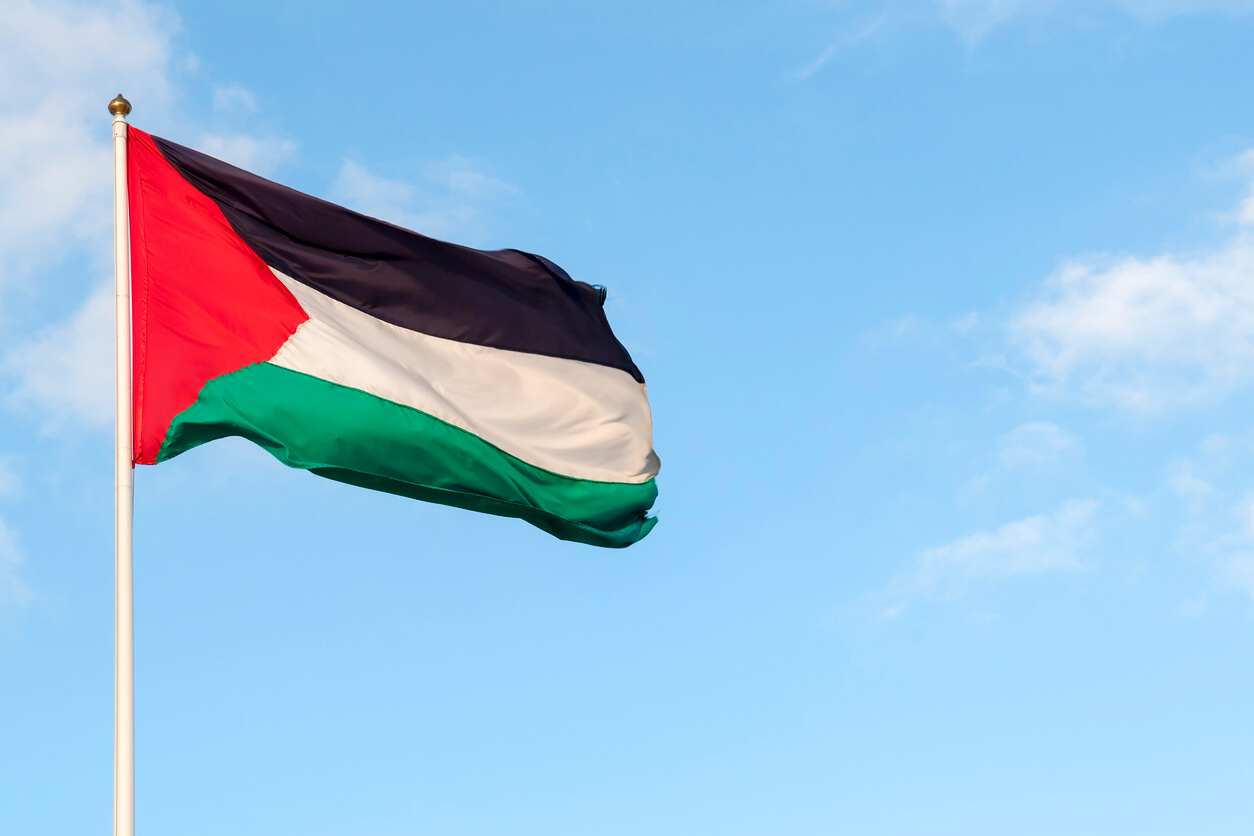Israel advances law imposing one-year jail term for public display of Palestinian flags
The bill sponsored by a far-right lawmaker passed the first of four legislative hurdles

A Palestinian flag in the West Bank. (iStock)
This article originally appeared on Haaretz, and was reprinted here with permission. Sign up here to get Haaretz’s free Daily Brief newsletter delivered to your inbox.
Israel’s parliament is advancing a bill that would ban the public display of flags of a “hostile entity.” The Knesset voted on a preliminary approval of the bill, which now needs to pass three additional votes.
The bill, sponsored by Otzma Yehudit lawmaker Almog Cohen, states that three or more people waving the flag of an enemy entity or organization will be considered a prohibited gathering. If the bill is enacted, flying the Palestinian flag in public would be punishable by up to a year in prison.
The Palestinian flag is often flown by Arab citizens of Israel, many of whom identify as Palestinians, and by left-wing Israeli who opposed the government’s settlement policies.
The police commissioner is authorized to ban the public display of Palestinian flags, if he deems the flags “a symbol that can lead to disrupting the peace.” However, enforcement is left to the discretion of the commander in the field. Also, in keeping with the instructions of the attorney general in 2006 and 2014, the police enforce this ban only when there’s “a high likelihood for a severe violation of public safety.”
The bill stipulates that if at least three people gather and display in public flags of an enemy state, or of a state, entity or body that are not friendly to Israel, or that don’t allow displaying the Israeli flag in their jurisdiction, would be seen as a forbidden gathering. Those taking part in the gathering may therefore be arrested and are liable to a prison sentence of up to one year. It would also be possible to disperse such a gathering by law.
The explanation to the bill says the bill “directs the public behavior in Israel. As a democracy, Israel enables its citizens to protest decisions they don’t agree with the authorities on. But the proposal draws a red line between legitimate protest and one in which there are flags of those who don’t recognize the State of Israel, those who aren’t friendly toward it or don’t enable Israel to raise its flag in its territory.”
Adalah, The Legal Center for Arab Minority Rights in Israel, said in a statement that police officers removing flags at protests and arresting those holding are in extreme breach of their authority and the law. Adalah said that this bill is even more extreme than the provisions of the coalition agreement with Otzma Yehudit, because it imposes criminal sanctions on displaying the flag in the entire public sphere, not merely in state or state-supported institutions.
Also approved in a preliminary vote Wednesday was a bill doubling the punishment for sexual harassment if the motive for the offense is determined to be nationalist. This bill, also sponsored by Otzma Yehudit, is couched in language suggesting, without saying so explicitly, that it targets harassment of Jewish women by Arab men. It provides for victim compensation of up to 240,000 shekels (almost $66,000), without a need to prove injury.




















